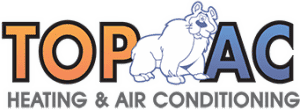As a homeowner, ensuring the safety and efficiency of your HVAC system is crucial for maintaining a comfortable and healthy living environment. HVAC systems regulate temperature, improve air quality, and provide ventilation, making them an essential component of any home. However, without proper care and maintenance, these systems can pose safety hazards.
Here are some essential HVAC system safety tips to keep your home safe and your system running smoothly.
Understanding the Importance of HVAC Safety
HVAC systems are integral to our daily lives, providing heating in the winter and cooling in the summer. However, without proper maintenance and safety measures, these systems can pose significant risks. Understanding the importance of HVAC safety can help you take the necessary steps to protect your home and family.
Key Risks Associated with Poor HVAC Maintenance
- Fire Hazards: Faulty wiring or overheating components can lead to fires.
- Carbon Monoxide Leaks: Gas furnaces can leak carbon monoxide if not properly maintained.
- Reduced Air Quality: Dirty filters and ducts can circulate dust, allergens, and other pollutants.
HVAC Safety Tips for a Secure Home Environment
1. Regular Maintenance
Schedule regular maintenance for your HVAC system. Professional inspections can identify potential issues before they become major problems. During these check-ups, technicians will clean and inspect all components, ensuring everything is in optimal working condition. This not only improves efficiency but also extends the lifespan of your system.
2. Change Air Filters Regularly
Air filters should be replaced every 1-3 months, depending on the type of filter and usage. Dirty filters restrict airflow, causing your system to work harder and potentially overheat. Clean filters improve air quality and reduce the risk of system malfunctions.
3. Keep Vents and Registers Clear
Ensure that all vents and registers are free from obstructions like furniture, curtains, or other household items. Blocked vents can cause uneven heating or cooling and put unnecessary strain on your system. This can lead to overheating and increase the risk of fire.
4. Check for Leaks
Inspect your HVAC system for any signs of refrigerant leaks. Refrigerant is crucial for cooling, and leaks can lead to reduced efficiency and increased energy costs. More importantly, refrigerant can be hazardous to your health if inhaled. If you suspect a leak, contact a professional immediately.
5. Install Carbon Monoxide Detectors
If you have a fuel-burning furnace, installing carbon monoxide (CO) detectors is essential. CO is a colorless, odorless gas that can be deadly. Detectors will alert you if CO levels become dangerous, giving you time to evacuate and call for help.
6. Inspect and Clean Ductwork
Dirty or damaged ductwork can negatively impact air quality and system efficiency. Have your ducts inspected and cleaned by a professional every few years to remove dust, allergens, and other debris. This helps prevent respiratory issues and keeps your system running smoothly.
7. Keep the Outdoor Unit Clear
The outdoor unit of your HVAC system needs adequate airflow to function properly. Ensure it is free from debris, leaves, and other obstructions. Maintain at least two feet of clearance around the unit and keep it on a level surface to avoid damage.
8. Be Aware of Unusual Noises or Smells
Strange noises or smells coming from your HVAC system can be indicators of underlying issues. Rattling, banging, or squealing noises may suggest loose or damaged parts, while unusual smells could indicate mold or electrical problems. If you notice anything unusual, contact a professional for an inspection.
9. Upgrade When Necessary
Older HVAC systems can be less efficient and more prone to safety issues. If your system is over 10-15 years old, consider upgrading to a newer model with advanced safety features and improved efficiency. Modern systems often come with programmable thermostats and energy-saving settings.
10. Educate Yourself and Household Members
Ensure that everyone in your household knows how to operate the HVAC system safely. Familiarize yourself with the thermostat, emergency shut-off switches, and how to change filters. Knowledge is key to preventing accidents and maintaining a safe environment.
By following these essential HVAC system safety tips, you can keep your home comfortable and safe year-round. Regular maintenance, vigilance, and prompt professional assistance are key to ensuring your HVAC system operates efficiently and safely.
For expert HVAC repair, maintenance, and installation services in Los Angeles, trust the professionals at TOP AC Inc. Our experienced technicians are dedicated to providing top-notch commercial and residential services to keep your HVAC system running smoothly. Contact us today to schedule your service and ensure your home stays comfortable and safe all year long!

